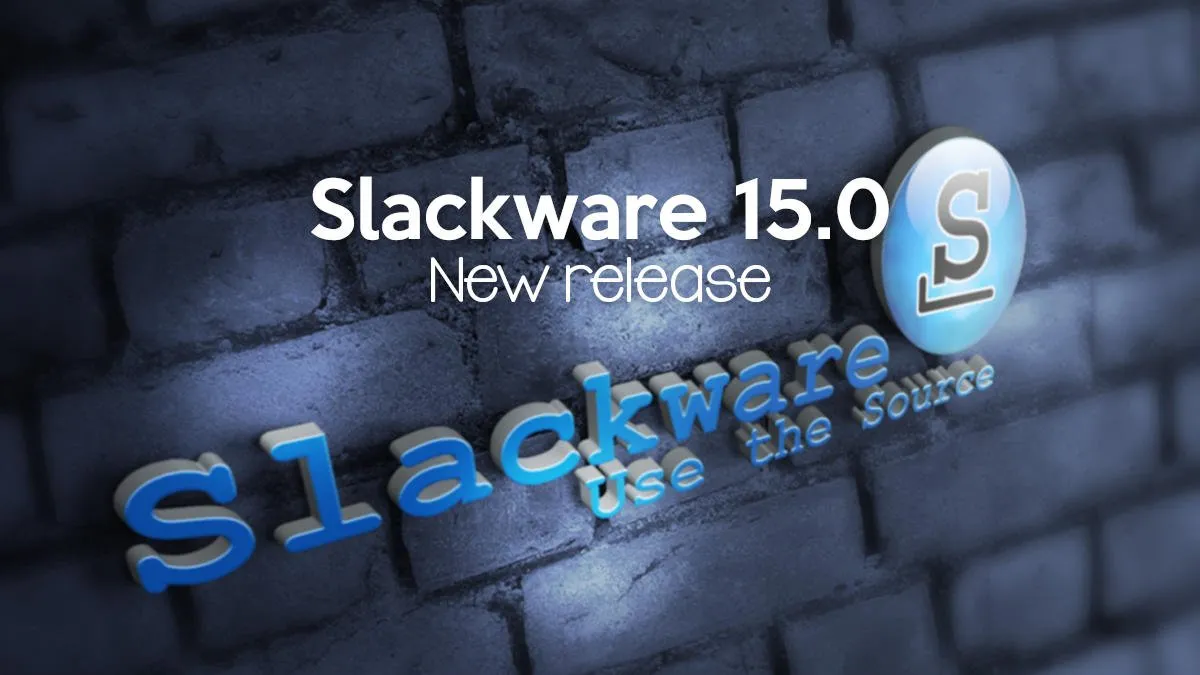
In the whirlwind of Linux distributions, each vying for attention with the latest features and flashiest interfaces, Slackware stands resolute – a lone sentinel safeguarding the principles of stability and simplicity. Often heralded as the most Unix-like distro, Slackware eschews the constant churn of bleeding-edge updates, prioritizing rock-solid performance and user empowerment. But why this seemingly old-fashioned approach? Why choose the unassuming stability of Slackware over the glitzy facades of its rivals?
The Allure of Simplicity: Less is Indeed More
Slackware embraces a minimalist philosophy. Unlike many distros that come pre-loaded with a smorgasbord of applications and desktop environments, Slackware Linux presents a clean slate. You, the user, are in complete control of what software graces your system. This meticulous approach fosters a lean and efficient environment, minimizing the attack surface for potential vulnerabilities. Fewer programs translate to fewer potential entry points for malicious actors. Additionally, a simpler system becomes significantly easier to troubleshoot and maintain. You’re not left grappling with complex dependency issues or obscure configuration settings that plague feature-rich distros.
Stability: The Bedrock of a Secure System
Slackware prioritizes stability like no other. Software packages undergo rigorous testing and verification before making it into the official repositories. This unwavering commitment to stability ensures a smooth-running system, one that is far less susceptible to regressions or bugs that can plague more fast-paced distros. While other distributions might boast the latest kernel versions, Slackware focuses on tried-and-true options that have a proven track record of compatibility with your hardware and existing software. This conservative approach minimizes the risk of encountering compatibility issues that can disrupt your workflow.
Embracing the Unix Philosophy: A Symphony of Modular Tools
Slackware takes immense pride in its adherence to the core tenets of the Unix philosophy. This philosophy champions the use of small, modular tools that excel at specific tasks. Imagine a toolbox filled with well-crafted wrenches, screwdrivers, and pliers, each designed to perform its function flawlessly. This modularity empowers you with unparalleled flexibility and customization. Need a text editor? Slackware offers a diverse selection, each with its own strengths and unique features. You’re not confined to a single, pre-installed option. Slackware empowers you to tailor your system to your exact workflow, a stark contrast to the “one-size-fits-all” approach of many contemporary distros.
Is Slackware Linux the Right Choice for You?
While Slackware’s unwavering focus on simplicity and stability offers undeniable advantages, it’s not without its considerations. The installation process can be more challenging for beginners, demanding a deeper understanding of Linux fundamentals. Additionally, the lack of a centralized package manager means you might need to compile software from source code, a process that can be intimidating for the uninitiated.
However, for seasoned users who value rock-solid performance and complete control over their systems, Slackware remains a compelling choice. It’s a testament to the enduring power of the Unix philosophy and a reminder that sometimes, the most secure and stable system is the simplest one.
Ready to Dive Deeper?
For those intrigued by Slackware’s philosophy, the official Slackware website (http://www.slackware.com/) offers a wealth of resources, including comprehensive documentation and a supportive community forum. Additionally, exploring books like “The Slackware Linux Book” by Patrick Volkerding himself can provide valuable insights into the installation, configuration, and administration of this unique Linux distribution.
While Slackware prioritizes stability through its meticulous package curation, it acknowledges the need for a wider software selection. This is where third-party repositories come into play. These repositories, maintained by independent developers, offer a vast array of additional software packages, ranging from productivity tools and multimedia applications to bleeding-edge development environments. Popular options include SlackBuilds.org, a community-driven repository known for its extensive collection of Slackware-compatible packages, and SBoPkg, a powerful package manager specifically designed for working with SlackBuilds.org repositories. It’s important to remember that these third-party offerings may not undergo the same rigorous testing as official Slackware packages, so a degree of caution is advised during installation. However, with a little research and the guidance of the Slackware community, you can leverage these repositories to significantly expand your software selection without compromising the core principles of stability that Slackware is known for.
Powering the Cloud: How Tech Giants Leverage Linux

While Windows dominates the desktop PC world, behind the scenes, Linux reigns supreme. Tech giants like Apple, Amazon, Google, and even major banks rely heavily on Linux for their server infrastructure. There are several reasons why Linux is the invisible engine powering the digital world:
1. Open Source Advantage: Linux is open-source, meaning its code is freely available for anyone to modify and improve. This allows for a vast developer community to constantly innovate and identify bugs, leading to a more secure and stable system.
2. Efficiency and Scalability: Linux is lightweight and efficient, requiring fewer resources to run compared to Windows. This translates to significant cost savings on hardware for companies managing massive server farms. Additionally, Linux scales effortlessly, allowing companies to easily add more servers as their needs grow.
3. Customization Power: Unlike Windows, Linux offers extreme customization. Companies can tailor the operating system to their specific needs, optimizing performance for their unique workloads. This flexibility allows for greater control and eliminates the bloatware often found on commercial operating systems.
4. Security First: Security is paramount for companies handling sensitive data. Linux, by its very nature, is considered more secure than Windows due to its open-source development model. The vast community of developers constantly scrutinizes the code, making vulnerabilities less likely to go unnoticed.
Here’s a glimpse into how some tech titans leverage Linux:
- Google: The foundation of Google’s massive server infrastructure is Linux. It powers everything from search algorithms to Gmail.
- Amazon: Amazon Web Services (AWS), the world’s largest cloud computing platform, runs primarily on Linux distributions.
- Apple: While Apple uses its proprietary macOS on its desktops, it heavily relies on Linux for its server infrastructure and powers key functionalities within iOS.
- Banking Industry: Many leading banks utilize Linux for their back-end operations due to its security, stability, and scalability.
- Tesla: For their Autopilot and self-driving technology, Tesla utilizes a custom Linux kernel. This allows them to have fine-grained control over the software running their vehicles and optimize performance for real-time decision making. The open-source nature of Linux also fosters collaboration with the autonomous vehicle developer community.
Is Linux Superior to Windows?
It’s not a case of clear superiority. While Linux dominates the server space, Windows remains the king of personal computers due to its user-friendly interface and vast software ecosystem. However, for companies prioritizing security, scalability, and efficiency, Linux offers undeniable advantages.
Choose Slackware Linux if You Truly Want a Vertical Business Model
Businesses seeking a secure, stable, and cost-effective foundation for their IT infrastructure should strongly consider migrating to Slackware Linux. Our team of expert Linux administrators at Holston Technology Group offers comprehensive installation and management services to ensure a smooth transition. Slackware’s minimalist core and focus on stability dramatically reduce licensing costs compared to proprietary software alternatives. Additionally, the open-source nature of Slackware eliminates vendor lock-in, empowering businesses to leverage a vast ecosystem of free and customizable tools. This translates to significant cost savings on software licenses and ongoing maintenance fees. Don’t let the initial learning curve deter you – our team will guide you through every step of the migration process, ensuring your business unlocks the full potential of a robust, cost-effective, and secure Linux environment.
Interested in Slackware Linux for Your Business? Get In Touch!
We offer Linux Administration and Installation Services. If you would like a free consultation on how Slackware Linux can drastically reduce your IT infrastructure costs Contact Us Today and let’s have lunch!


Seriously loving 365 slots vip for the huge slot variety! You can play for days and still not try all the options. Plus, sometimes they have VIP-exclusive jackpots. Don’t miss the fun at 365 slots vip.